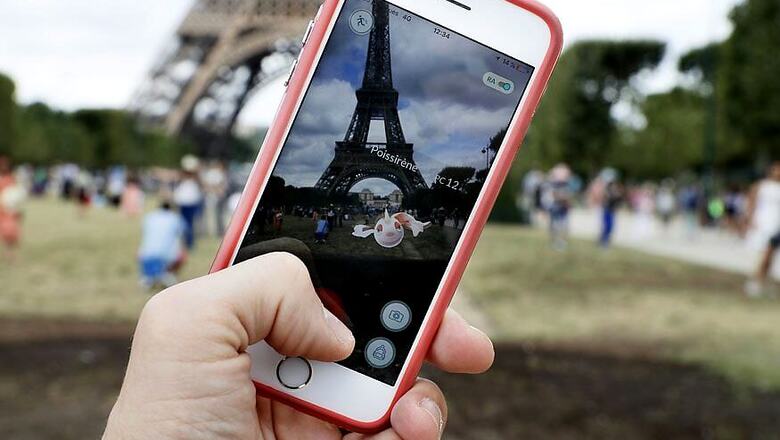
views
New Canadian research has found that those who are more extroverted tend to make better players when it comes to augmented reality games that require interaction with others, such as Pokemon Go.
Carried out by the University of British Columbia, the study is the first to look at how players' personalities, social competence, and social anxiety can affect their success at the game.
As traditional video games involve playing indoors, and sometimes playing alone, they have a reputation for attracting introverts rather than extroverts. However, the trend for Pokémon Go has taken people outside to play and in groups.
For the new study, researchers recruited 101 Pokémon Go players between the ages of 18 and 28 and asked them to complete questionnaires about their personality, social anxiety and social competence.
Participants were asked to play the game for 20 minutes while the team observed their performance.
They found that extroverted participants performed better than those who described themselves as socially introverted, catching more Pokémon, visiting more PokéStops and traveling greater distances.
"This counters the prevailing stereotype that gamers are socially awkward," commented Adri Khalis, the study's lead author. "Rather, we think that modern video games, such as those involving augmented reality, have a lot of social aspects and therefore require players to have good social competence to do well playing them."
"We found that players who are socially anxious might be self-conscious and less likely to engage in the game because they may fear others are judging them," he continued. "They may hesitate to play when others are watching and are less likely to collaborate with fellow players, like pointing out nearby Pokémon or sharing tips."
The researchers are now using their findings to looks at how augmented reality video games could be designed to help those who struggle socially, for example gradually increasing how socially involved players need to be as the game progresses.
"In the beginning, players might only need to communicate with a person through text, but as the game reaches a higher level, they may have to actually be physically close to other players to collaborate and win," explained Khalis. "The game provides a context in which interacting with others might be easier than walking up to a stranger and striking up a conversation from the get-go."
"Being socially confident not only helps us succeed in face-to-face, 'real world' activities but it also seems to apply to video games," added the study's senior author Amori Mikam. "As these games become more popular, we have a unique opportunity to examine the individual personality traits and characteristics that influence behavior in a digital context."
The study can be found published online in the journal Personality and Individual Differences.













Comments
0 comment